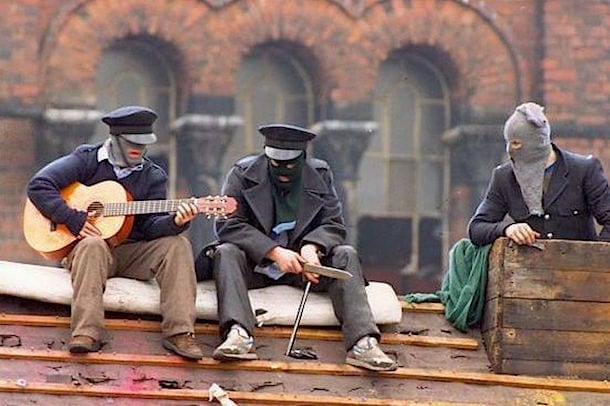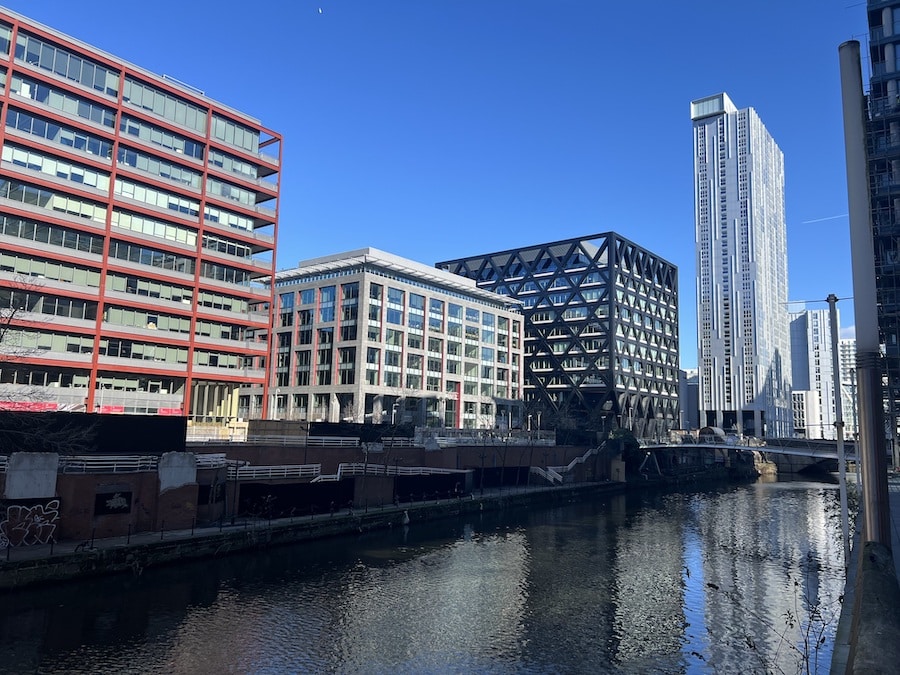“We’re at breaking point” iconic Manchester bar owner speaks out on hospitality crisis
- Written by Thom Bamford
- Last updated 2 months ago
- City of Manchester, Community, Featured
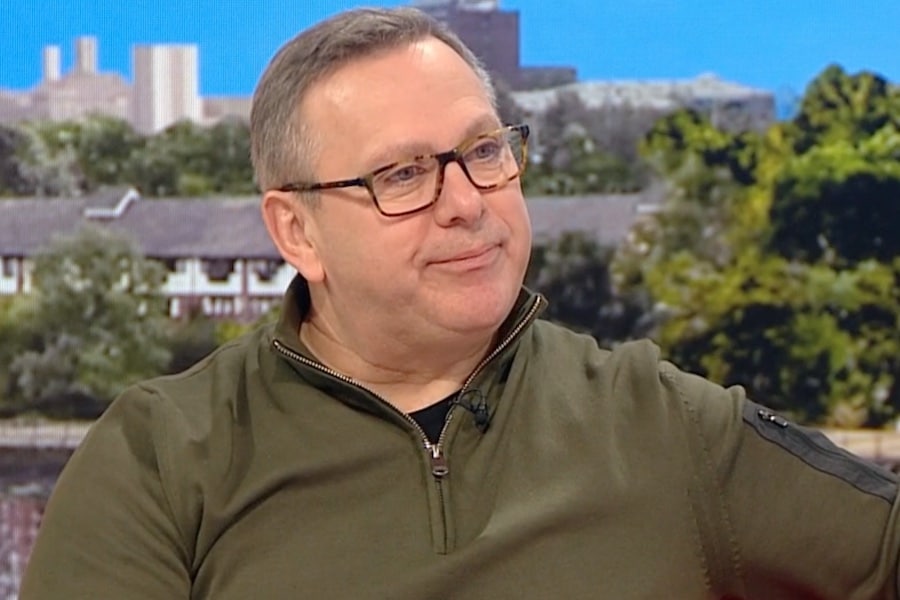
This morning on BBC Breakfast, Mark Wrigley, the owner of Manchester’s iconic Atlas Bar, delivered a sobering message to hosts Naga Munchetty and Charlie Stayt: the hospitality sector is on the brink of collapse.
With a combination of government-imposed financial pressures and a cost-of-living crisis squeezing customers’ wallets, independent bars like his face an uncertain future.
“Independent small businesses like mine will be destroyed by these financial changes,” said Mark, 61, said during the interview. “Every year it gets tougher, and this year, it’s been accelerated in terms of worry and concern.”
For Mark, who runs the Deansgate Gin Haven with his wife, Elaine, the challenges are deeply personal.
Over the last decade, the couple has transformed Atlas Bar into a thriving business, known for its vast gin selection and welcoming atmosphere. But now, the survival of their venue—and the livelihoods of their 27 employees—hangs in the balance.
Atlas Bar
The Autumn Budget, unveiled by Chancellor Rachel Reeves, has drawn widespread criticism from the hospitality sector. For Wrigley, the announcement marked a turning point.
“It was a difficult budget for hospitality,” he explained on the program. “A large part of the new tax burden falls on a sector that hasn’t had a break after COVID, lockdowns, and soaring record inflation.”
Among the most damaging changes are increases to employers’ National Insurance contributions (NICs), a lowering of the threshold at which NICs must be paid, a rise in the minimum wage, and cuts to business rates support.
The impact on Atlas Bar’s bottom line will be significant. “At least £28,000 a year is going onto our costs,” Mark said. “That’s just from higher wages, NICs, and business rates. We’ve built this business from the ground up, but these costs are unsustainable.”
Crunching the numbers
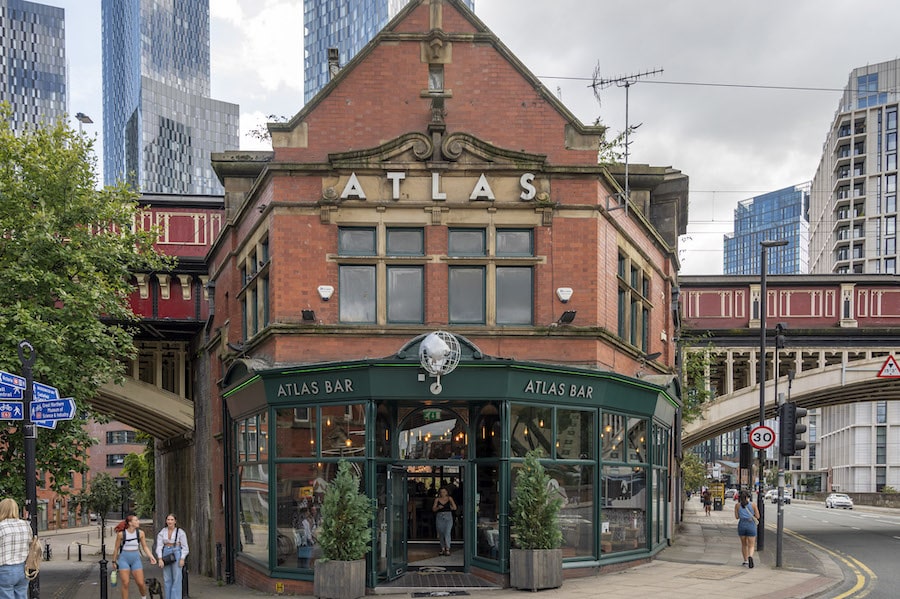
Atlas Bar’s financial reality mirrors that of many small businesses in the sector. Wrigley explained that staff costs already make up 35% of the business’s turnover. The changes imposed by the government threaten to obliterate the slim margins the bar operates on.
“National Insurance alone will eat into 25% of our operating profit. And we’re at the limit of what we can charge our customers. To accommodate these changes, I’d need to add 30 or 40p to the price of a pint. But can my customers afford that?”
Mark has already had to abandon plans to extend opening hours and hire two additional staff. Instead, he faces the grim prospect of layoffs. “I’m looking at losing two staff members and abolishing our four-day working week,” he said.
A labour of love
The Atlas Bar has been a family affair since the Wrigleys took over in 2012. Their four children have all worked there, and the couple has poured heart and soul into transforming the venue into one of Manchester’s most beloved watering holes.
“We’ve created something special here,” Wrigley told BBC Breakfast. “It’s not just a business; it’s a community. People come here to connect, to relax, to celebrate. That’s what hospitality is all about.”
From breakfast and brunch to late-night drinks, the bar attracts a diverse clientele, bolstered by a reputation for offering over 570 gins. But with customers feeling the pinch of rising costs, even a loyal following may not be enough to see the business through.
“January is always subdued,” Wrigley admitted. “People are strapped for cash after Christmas, and now we’ve got Dry January on top of that. But those who do come out—they come to meet friends, to socialise. That’s what keeps us going.”
A broken system
Wrigley’s frustration with government policy was evident during the interview. “The government hasn’t given us a break,” he said. “Unless these National Insurance changes are reversed and there’s a cut in VAT, only huge companies like Wetherspoons will survive. They’ll sit back, watch us go under, and pick up market share.”
Efforts to engage with policymakers have so far yielded mixed results. “I wrote to Lisa Nandy, my local MP, but got no response,” he revealed. “In fairness, Lucy Powell has said she’ll come down to chat, and that’s something. But it’s hard not to feel like we’re shouting into the void.”
Wrigley is also working with industry bodies like UK Hospitality and the British Institute of Innkeeping (BII) to push for change. But time is running out.
As Wrigley spoke on BBC Breakfast, his emotions underscored the human cost of these financial pressures. The impact isn’t just on the bottom line—it’s on the people who make up the heart of his business.
“Our staff are brilliant,” he said. “Many of them are students, working a couple of shifts a week. But from April, they’ll all be subject to National Insurance. It’s a massive on-cost for us and for businesses like ours.”
For Mark and Atlas, the stakes couldn’t be higher. “We’re not asking for handouts,” he said. “We just need a level playing field. We need policies that support small businesses, not crush them.”
A fragile future
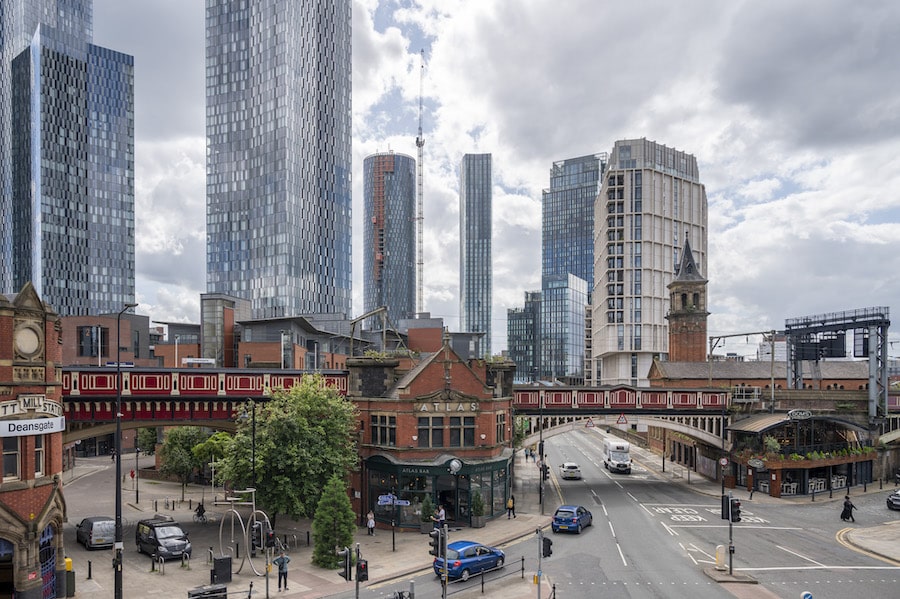
Despite the challenges, Wrigley remains committed to his craft. “It’s not just a job,” he said. “It’s who I am. And it’s heartbreaking to think we could lose everything we’ve worked so hard to build.”
As the interview wrapped up, Wrigley was preparing to head back to Atlas Bar for a busy Saturday shift. “We’ll keep going,” he said with a determined smile. “That’s what we do.”
But as hospitality businesses across the UK face an uncertain future, one thing is clear: without meaningful support, the soul of the industry—the independent bars and restaurants that bring life to our cities—may be lost.
You can find out more about Atlas Bar by clicking here
- This article was last updated 2 months ago.
- It was first published on 11 January 2025 and is subject to be updated from time to time. Please refresh or return to see the latest version.
Did we miss something? Let us know: [email protected]
Want to be the first to receive all the latest news stories, what’s on and events from the heart of Manchester? Sign up here.
Manchester is a successful city, but many people suffer. I Love Manchester helps raise awareness and funds to help improve the lives and prospects of people across Greater Manchester – and we can’t do it without your help. So please support us with what you can so we can continue to spread the love. Thank you in advance!
An email you’ll love. Subscribe to our newsletter to get the latest news stories delivered direct to your inbox.
Got a story worth sharing?
What’s the story? We are all ears when it comes to positive news and inspiring stories. You can send story ideas to [email protected]
While we can’t guarantee to publish everything, we will always consider any enquiry or idea that promotes:
- Independent new openings
- Human interest
- Not-for-profit organisations
- Community Interest Companies (CiCs) and projects
- Charities and charitable initiatives
- Affordability and offers saving people over 20%
For anything else, don’t hesitate to get in touch with us about advertorials (from £350+VAT) and advertising opportunities: [email protected]
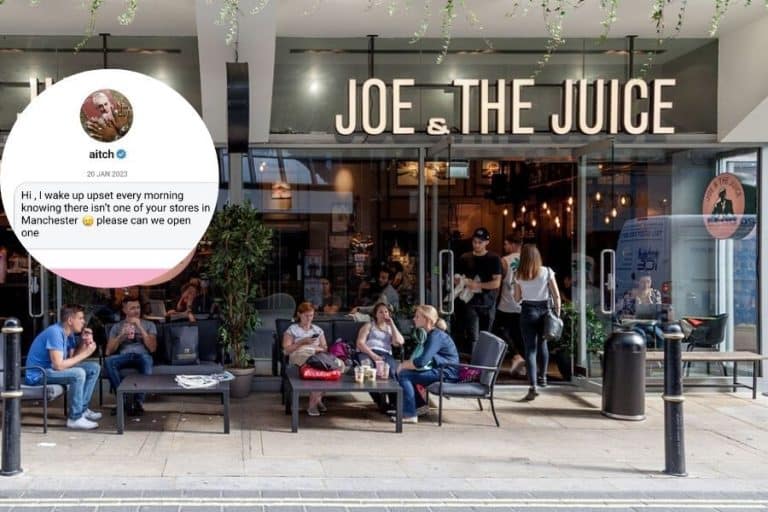
Joe & The Juice is launching a massive Manchester store – thanks to local rapper Aitch
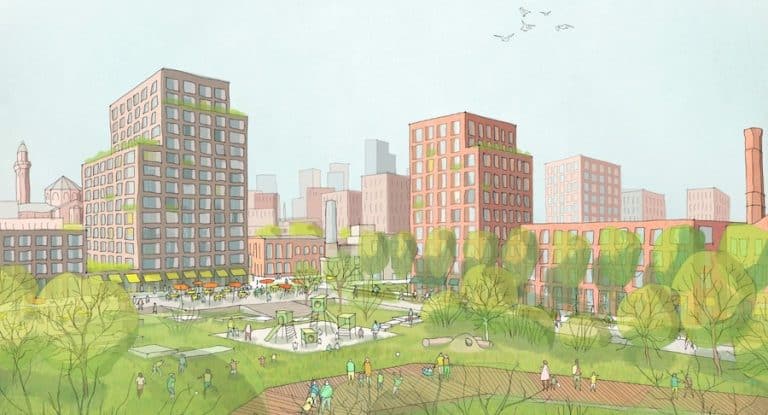
Strangeways could be home to thousands – but there’s one big problem in the way






